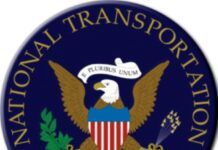In her appearance at AOPA, Blakey said she did not support a new funding system that would entail “broad user fees.” Later, when asked to clarify, she told attendees, “Everybody who uses the air traffic control system should pay their fair share, including the public through a continued general fund contribution,” according to the association. “We do not want to create a funding system that stifles GA,” she added. Of course, one person’s “fair share” is another’s “stifling.” At NBAA, Blakey summed up her agency’s bottom line thusly: “We need a stable, cost-based revenue stream.” What that might resemble, how it would be structured and who would pay the most — and reap the benefits — are all questions that will define the coming Congressional debate.
The question of whether the 110th Congress might seek to impose new aviation security measures is even fuzzier. While nothing approaching even the FAA’s undefined hopes for a user-fee scheme has been formally proposed, several Democrats assuming the mantles of Congressional power in January have been critical of what they perceive as a lack of security among most general and business aviation operations. One example is U.S. Sen. Chuck Schumer, D-N.Y., who last month asked the FAA and the Department of Homeland Security to, among other things, “assess whether pilots should have background checks before flying in river corridors or over Manhattan” in the aftermath of Cory Lidle’s crash into a New York City apartment building. Another senator known for advocating increased general aviation security measures is Herb Kohl, D-Wis., who at one point in 2002 was convinced each and every general aviation flight — even those departing private turf airports or Alaskan sandbars — should go through airline-style security screening. Cooler heads prevailed then — helped along by passing time and distance from the 9/11 terrorist attacks — but incoming Democrats may feel pressured to take steps designed to enhance security on their watch, not reduce it. Acknowledging the challenges, AOPA’s Boyer said, “We’ll have more work to do to educate people about the great strides we’ve made in improving security, and to the minimal threat that GA represents.” Boyer’s statement pretty succinctly sums up what we’ll all have to look forward to in 2007, not just on security, but on many other government policies affecting general and business aviation. Watch this space.


































